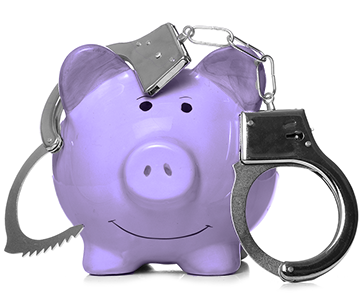
Arrival at court
Your
solicitor or the court will give you the time, date and location of the court
hearing. It is a good idea to familiarise yourself with where the court
is so that you can get there in plenty of time. It will not help your
stress levels if you arrive late.
Sometimes
your lawyer may suggest meeting at court some time before the hearing to discuss
it, but even if they don’t, it is a good idea to arrive at least half an hour
before the court hearing time.
How long will it take?
Courts
are like doctors’ surgeries and often run behind time because they have urgent
matters to fit in. This means that you may not get on to your hearing at
exactly the appointment time so be prepared for a wait. Make sure you are well
in time just in case the court list is running on time.
This
also means that the hearing may not finish on time, so make sure that you are
not under pressure to leave at a particular time on your hearing day. If
you have driven, make sure that you can park for quite a few hours wherever you
leave your car.
Most
of the modern courts in the larger cities have a cafeteria so you may be able
to get refreshments in the building.
Preparing for court
It
is likely that your lawyer will have sent you your witness statement or other
evidence. Re-read it to refresh your memory, as you may be asked about
it. Your lawyer will often suggest meeting before the hearing to discuss the
evidence and case.
What do I need to wear?
It
is not compulsory to wear a suit, however, courts are a formal environment
where people tend to dress conservatively. You may feel more comfortable
and that you are making a better impression if you dress smartly.
What will the Judge be wearing?
In
many civil court hearings, the Judge and barristers will not be wearing wigs
and gowns and will just be in business attire. However, in some civil
hearings and most criminal court cases you will see the Judge and barristers
wearing wigs and gowns.
What do I call the Judge?
This
depends on which court you are in.
Most
hearings take place in the magistrates’ court or county court.
In
the magistrates’ court there will be up to three magistrates, who are also called
Justices of the Peace. They are addressed as “Your Worship”.
In
the county court it will probably be a District Judge who is addressed “Sir” or
“Madam”.
In
the crown or some county courts, it may be a Circuit Judge who is addressed “Your
Honour”.
Your
lawyer will be able to tell you more about this when you arrive.
What actually happens when I am there?
When
the Judge walks in everyone stands and stands again when the Judge leaves.
The
barristers or solicitor advocates introduce the case and then sometimes
witnesses will be called to give evidence. If you are called to give
evidence, you will have to swear an oath to tell the truth and then the
advocates for both sides can ask you questions. The Judge can also ask
questions.
At
the end of the hearing, in a civil case, the Judge will give a judgement
setting out their findings and stating who has won. In serious criminal
cases, a jury would give a verdict. It is very rare to have a jury involved in
a civil case.
Sometimes
the Judge in a civil case may not give their judgement for several days or even
weeks after the hearing. In simple cases, they may give a judgement straight
away.

